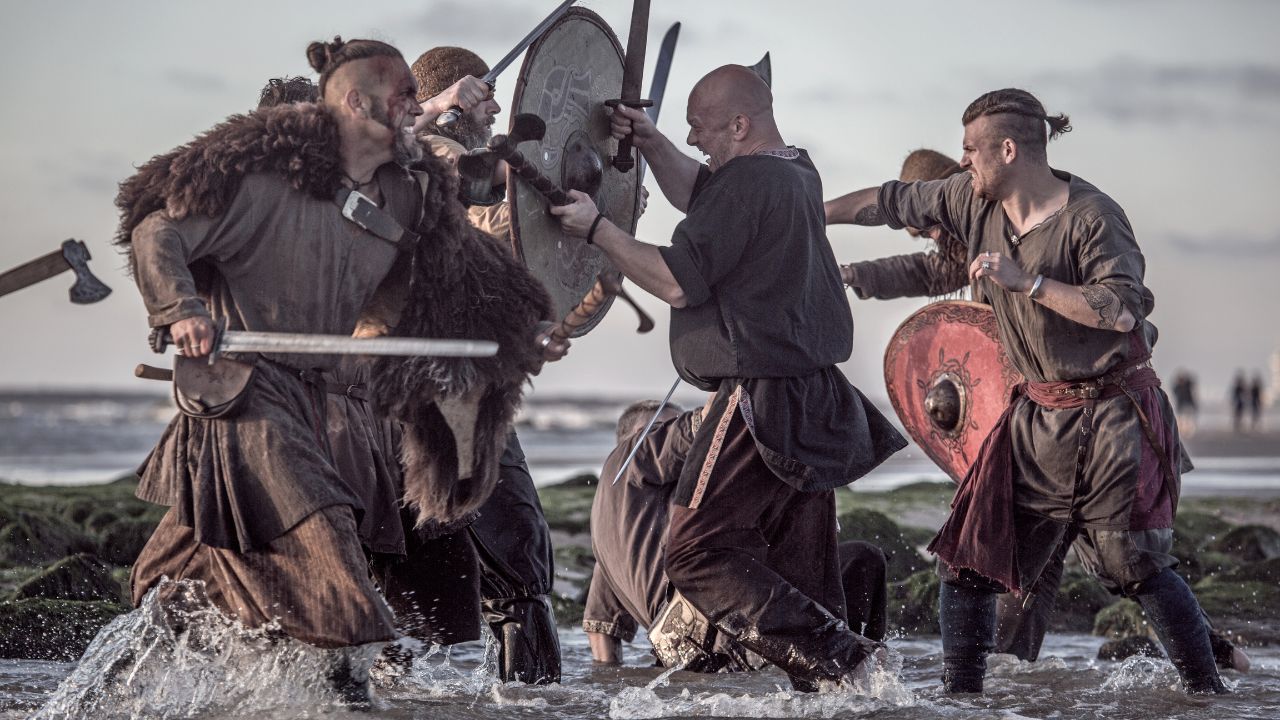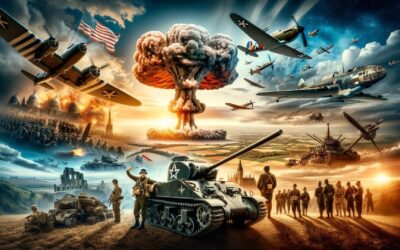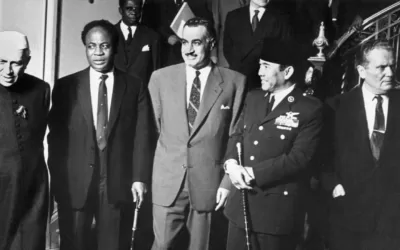- Introduction
- The Battle of Marathon (490 BC)
- The Battle of Thermopylae (480 BC)
- The Battle of Gaugamela (331 BC)
- The Battle of Cannae (216 BC)
- The Battle of Hastings (1066 AD)
- The Battle of Agincourt (1415 AD)
- The Battle of Waterloo (1815 AD)
- The Battle of Gettysburg (1863 AD)
- The Battle of Stalingrad (1942-1943 AD)
- The Battle of Midway (1942 AD)
- The Battle of Normandy (1944 AD)
- Conclusion
- Crossword Puzzle in Context
- Keywords
Introduction
Spotlights are powerful tools that illuminate the darkness and bring attention to important events. Throughout history, some of the most significant moments have been recorded through the use of spotlights. One such moment is the famous battles that have occurred throughout the ages. These battles have defined nations, changed the course of history, and showcased the bravery and skill of those who fought in them. In this article, we will explore some of the most famous battles of all time, examining their historical significance and the impact they had on the world.
The Battle of Marathon (490 BC)
The Battle of Marathon was fought between the Persian Empire and the Greek city-state of Athens in 490 BC. The Persian Empire, led by King Darius I, had already conquered several Greek city-states and had set its sights on Athens. The Athenians, led by General Miltiades, knew that their city was the next target and gathered a force of 10,000 hoplites (infantry soldiers) to defend their city. Despite being outnumbered two-to-one, the Athenians were able to defeat the Persians, killing approximately 6,400 Persians while only losing 192 Athenians. The victory at Marathon allowed Athens to become the dominant city-state in Greece and set the stage for the emergence of Western civilization.
The Battle of Thermopylae (480 BC)
The Battle of Thermopylae was fought between the Persian Empire and a coalition of Greek city-states in 480 BC. The Persian army, led by King Xerxes, had invaded Greece with a force of approximately 100,000 soldiers. The Greeks, led by King Leonidas of Sparta, had only 7,000 soldiers to defend the pass at Thermopylae. The Greeks fought bravely, holding off the Persian army for three days before ultimately being defeated. Although the Greeks lost the battle, their bravery and determination inspired the rest of Greece to unite against the Persian Empire. The Battle of Thermopylae is remembered as a symbol of courage and determination in the face of overwhelming odds.
The Battle of Gaugamela (331 BC)
The Battle of Gaugamela was fought between the Macedonian Empire, led by Alexander the Great, and the Persian Empire, led by King Darius III, in 331 BC. The Persian army had a numerical advantage, with approximately 250,000 soldiers compared to the Macedonian force of approximately 47,000 soldiers. However, Alexander’s army was well-trained and well-led, and they were able to defeat the Persians decisively. The victory at Gaugamela allowed Alexander to conquer the Persian Empire and establish one of the largest empires in history.
The Battle of Cannae (216 BC)
The Battle of Cannae was fought between the Roman Republic and the Carthaginian Empire during the Second Punic War in 216 BC. The Carthaginian army, led by General Hannibal, had invaded Italy and had already won several major battles against the Romans. The Roman army, led by General Varro and General Paullus, was significantly larger than the Carthaginian army, with approximately 80,000 soldiers compared to the Carthaginian force of approximately 50,000 soldiers. However, Hannibal was a master tactician and was able to use a double envelopment strategy to defeat the Romans. The Carthaginians were able to kill approximately 50,000 Romans while only losing 5,000 of their own soldiers. The Battle of Cannae is remembered as one of the greatest military victories in history and is still studied by military strategists today.
The Battle of Hastings (1066 AD)
The Battle of Hastings was fought between the Norman-French army, led by Duke William II of Normandy and the Anglo-Saxon army, led by King Harold II of England, on October 14, 1066 AD. The battle marked the end of Anglo-Saxon England and the beginning of Norman rule. Duke William had a force of approximately 7,000 soldiers, while King Harold had approximately 7,500 soldiers. Despite being outnumbered, Duke William was able to win the battle through a combination of tactics and superior equipment. King Harold was killed during the battle, and his death marked the end of Anglo-Saxon rule in England. The Battle of Hastings is considered one of the most significant events in English history and is still studied in schools today.
The Battle of Agincourt (1415 AD)
The Battle of Agincourt was fought between the English army, led by King Henry V, and the French army, led by Charles d’Albret, on October 25, 1415 AD. The English army was significantly outnumbered, with approximately 6,000 soldiers compared to the French force of approximately 20,000 soldiers. However, the English army was well-prepared and had superior weapons, including the longbow. The English were able to defeat the French, killing approximately 7,000 French soldiers while only losing around 400 English soldiers. The Battle of Agincourt is remembered for the bravery and skill of the English archers and is considered one of the most significant English military victories.
The Battle of Waterloo (1815 AD)
The Battle of Waterloo was fought between the British army, led by the Duke of Wellington, and the French army, led by Napoleon Bonaparte, on June 18, 1815 AD. The battle marked the end of the Napoleonic Wars and the defeat of Napoleon’s empire. The British army, with the help of the Prussian army, was able to defeat the French army, killing approximately 25,000 French soldiers while only losing around 17,000 British and Prussian soldiers. The Battle of Waterloo is considered one of the most significant battles in European history and is still studied today by military historians.
The Battle of Gettysburg (1863 AD)
The Battle of Gettysburg was a significant battle fought between the Union and Confederate armies during the American Civil War. The battle took place in July 1863 and was the bloodiest battle of the war, resulting in approximately 50,000 casualties. The Confederate army, led by General Robert E. Lee, had invaded Pennsylvania and was met by the Union army, led by General George G. Meade. The Union army was ultimately able to defeat the Confederate army, and the Battle of Gettysburg marked a turning point in the war, as the Union was able to gain momentum and eventually win the war.
The Battle of Stalingrad (1942-1943 AD)
The Battle of Stalingrad was a pivotal battle fought between the German army and the Soviet Union during World War II. The battle began in August 1942 and lasted for over six months, resulting in the deaths of approximately two million people. The German army initially made significant gains, but the Soviet army, led by General Zhukov, was able to hold the city and ultimately defeat the Germans. The Battle of Stalingrad marked a turning point in the war, as the Soviet Union was able to launch a counteroffensive and push the Germans back towards Germany.
The Battle of Midway (1942 AD)
The Battle of Midway was a naval battle fought between the United States and Japan during World War II. The battle took place in June 1942 and was a significant victory for the United States. The Japanese navy had planned to invade Midway Island, but the United States was able to intercept their communications and plan a surprise attack. The United States was able to sink four Japanese aircraft carriers, resulting in a significant loss of Japanese planes and pilots. The Battle of Midway marked a turning point in the Pacific Theater of the war, as the United States was able to gain the upper hand and ultimately defeat Japan.
The Battle of Normandy (1944 AD)
The Battle of Normandy, also known as D-Day, was a significant battle fought between the Allied and German armies during World War II. The battle took place on June 6, 1944, and marked the beginning of the Allied invasion of Europe. The Allies were able to land approximately 156,000 troops on the beaches of Normandy, France, and establish a foothold on the continent. The Battle of Normandy was a significant victory for the Allies and marked a turning point in the war, as they were able to begin pushing the Germans back towards Germany.
Conclusion
Famous battles have shaped the course of history and inspired future generations. The battles discussed in this article are just a few examples of the many significant battles that have occurred throughout history. These battles have taught us valuable lessons about strategy, leadership, and the human spirit. They have shown us what can be accomplished when people work together towards a common goal and what can happen when they let their differences divide them. The legacies of these battles will continue to inspire and teach us for generations to come.
Crossword Puzzle in Context
All the words you need to solve this crossword puzzle are in the article above. Learn & Enjoy!
Keywords
- Spotlights: A powerful tool that illuminates the darkness and brings attention to important events.
- Battle of Marathon: A battle fought between the Persian Empire and the Greek city-state of Athens in 490 BC.
- Battle of Thermopylae: A battle fought between the Persian Empire and a coalition of Greek city-states in 480 BC.
- Battle of Gaugamela: A battle fought between the Macedonian Empire, led by Alexander the Great, and the Persian Empire, led by King Darius III, in 331 BC.
- Battle of Cannae: A battle fought between the Roman Republic and the Carthaginian Empire during the Second Punic War in 216 BC.
- Battle of Hastings: A battle fought between the Norman-French army, led by Duke William II of Normandy, and the Anglo-Saxon army, led by King Harold II of England, in 1066 AD.
- Battle of Agincourt: A battle fought between the English army, led by King Henry V, and the French army, led by Charles d’Albret, in 1415 AD.
- Battle of Waterloo: A battle fought between the British army, led by the Duke of Wellington, and the French army, led by Napoleon Bonaparte, in 1815 AD.
- Battle of Stalingrad: A pivotal battle fought between the German army and the Soviet Union during World War II.
- Battle of Midway: A naval battle fought between the United States and Japan during World War II.
- Battle of Gettysburg: A significant battle fought between the Union and Confederate armies during the American Civil War.
- Battle of Normandy: A significant battle fought between the Allied and German armies during World War II.
- Persian Empire: An ancient empire that ruled over much of the Middle East and Central Asia from approximately 550 BC to 330 BC.
- Greek city-state: A city and its surrounding territory that functioned as an independent political unit in ancient Greece.
- Macedonian Empire: An ancient empire that was established by Alexander the Great and ruled over much of the Mediterranean world from 323 BC to 30 BC.
- Carthaginian Empire: An ancient empire that was based in North Africa and dominated much of the western Mediterranean from approximately 650 BC to 146 BC.
- Norman-French army: An army composed of Normans, who were originally from Scandinavia, and French soldiers who conquered England in 1066.
- Anglo-Saxon army: An army composed of Anglo-Saxons, who were Germanic peoples that settled in England in the 5th and 6th centuries AD.
- Napoleonic Wars: A series of wars fought between France and various European powers from 1803 to 1815.
- Pacific Theater: The theater of World War II that was fought in the Pacific region, primarily between the United States and Japan.












0 Comments